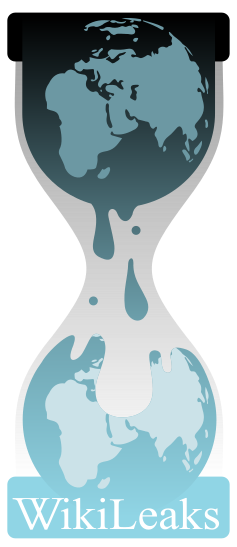Last week, we learned more about world leaders and diplomacy than some of us would care to know – with revelations about Gaddafi and his nurse being the front-runner candidate for the most TMZ-like material made available, courtesy of Wikileaks. All the buzz and panic that ensued following the release of the US Embassy diplomatic cables motivated a colleague of mine to ask me: are social media’s mantras of transparency, information sharing and digitization of conversations, relationships and activities saving us or are they dooming us all?

Image via Wikipedia
Even though Wikileaks have been called “social media journalism” by some, the seeds that enabled their model were planted much before the age of Twitter or Facebook. Clay Shirky had already stated in his book Here Comes Everybody:
(…) in an age of inifinite perfect copyability to many people at once, the very act of writing and sending an e-mail can be a kind of publishing, because once an e-mail is sent, it is almost impossible to destroy all the copies, and anyone who has a copy can broadcast it to the world at will, and with ease. Now, and presumably from now on, the act of creating and circulating evidence of wrongdoing to more than a few people, even if they all work together, will be seen as a delayed but public act.
A clever Venn diagram was circulated over the Internet in late October, suggesting that nothing in the Internet is actually private. The picture below was based on that diagram:

I would argue that the Internet is not the culprit either. I still remember a good friend of mine saying in the early 1990s: “the only things that are really private are the ones you never shared with anybody”. Thus, a Venn diagram depicting privacy vs. the Internet would look more like this:

A relatively recent case of private information leaking to the general public corroborates that point-of-view: Tiger Woods’ challenging year started with verbal accounts of marital infidelity and a phone voice message. No email, no tweets, no Facebook status updates took any part in it. In fact, the now number 2 golfer in the world has finally turned on his Twitter account, seemingly to restore his public image. Ironically enough, by checking the Wikipedia entry on this subject, I learned that Woods and his former wife own a 155-foot yacht called Privacy!
Any concern that by adopting social media practices a company or person will be more vulnerable to this kind of exposure is not well supported by actual evidence. By adding transparency to conversations, relationships and activities, the use of social media may actually contribute to reduce opportunities for doing the wrong or the hidden thing in the first place. Furthermore, it puts you on the driver seat – the remaining question being how much of a good driver you are.
Perhaps we are taking ourselves too seriously here. To keep all this in perspective and also for a good laugh, I highly recommend you to read Julien Smith’s post, All social media experts “are actually the same person,” Wikileaks documents reveal. Here’s a sneak preview:
“Paul from Miami,” as he is identified in Wikileaks documents, appears to be the source of an entire industry of Twitter experts who seemingly give the same advice and yet somehow all have over 20,000 Twitter followers each. (…) Meanwhile, Wikileaks founder Julian Assange suggested more bombshells might be on the way. Speculation was rampant that “SEO experts” and “marketing gurus” might also all be sourced from a single individual, or worse, be “Paul from Miami” as well. Paranoia is on the rise.
Anyway, this is Aaron from Toronto, who I promise is not the same person as Paul from Miami, but on the Internet, I guess you never know. What’s your take on social media and privacy?





